Find out what our graduates have to say about the Systems Medicine Program.
M.S. Alumni
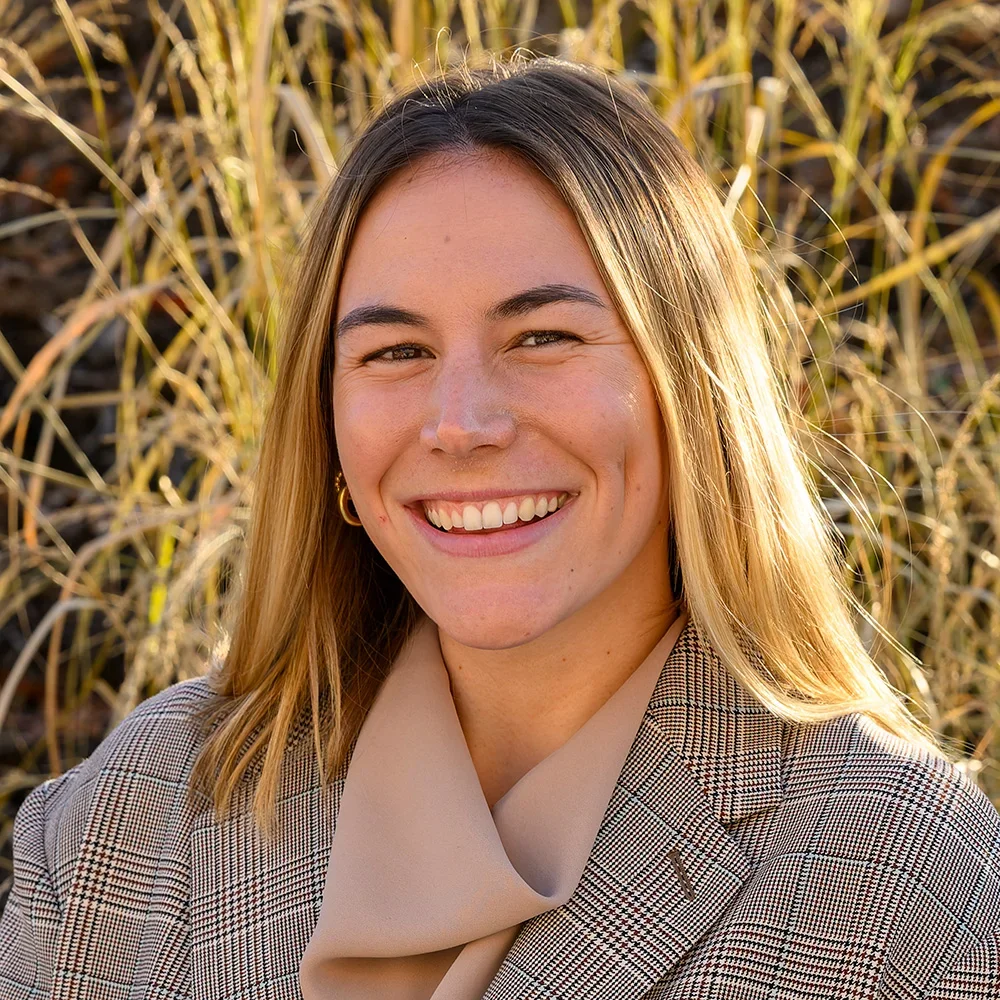
Rachael Holp
“The last 12 months have been the most impactful 12 months of my life. I have learned a lot through school and life so far, and I am incredibly grateful for many of the experiences I have had that have pushed me to be the best version of myself, even if it has been incredibly uncomfortable and challenging. I would not change or take away those experiences for anything. Most of these experiences and troubles were not conventional and required a lot of mental and physical strength, but they shaped me to who I am today. So, when I ultimately decided to change my plans last summer, I could have never imagined that I would have landed in the Systems Medicine Master’s Program, but let me tell you, it was the best decision I have ever made. Sometimes in life, things align and work so perfectly (with some effort of course) that even if that leap, step or decision is scary, there is peace in knowing it was meant to be. That is precisely how I felt about joining this program. To spare you most of the details, I had yet to even graduate from my undergraduate institution when I applied to the Systems Medicine program. And while it might seem confusing or troubling how I ended up where I am, it was actually seamless and with a few emails to figure out the moving pieces, landed me where I am today.
I cannot thank Dr. V enough for how she has impacted and improved my life. I knew a few things about the program and what I was signing up for, but I could have never been prepared for the amount of learning and growth I would experience during my time in the program. I learned more in the past year than ever, and I am walking into the medical school application process with an entirely new perspective about what it means to be a physician and how I can impact others’ lives. Dr. V is the most caring, genuine, smart, purposeful, kind and helpful person I have ever met. From day one she has always believed in me, most times way more than I ever believe in myself. She has helped me become a better public speaker, a more intelligent writer, and thoughtful thinker, a more motivated student and overall a better person. She cares for me and all of my other peers as one of her own, and as a very sensitive, intuitive and empathetic person, I could not think of a better way to flourish under someone that cares so much about me.
This program helped me realize that it is simply not “enough” to want to become a physician. Yes, you need the passion and drive and want to become one, but ultimately that is not what makes a good physician. A good physician requires extreme compassion, the capability to think critically in all scenarios, to push the boundaries and limits of what we know is true to discover new life-changing information. It requires us to view the whole body as a system, not to treat people and their symptoms as broken parts with a “quick fix” such as a pill or surgery.
Patience is a virtue in our field, speckled with many sleepless nights. I find myself constantly motivated by the fact that there is SO much research to be done, and clinical practices to change so that patients can receive the adequate treatment to help them lead the healthiest life they deserve. Systems medicine is much more than just analyzing big data and informing the change of clinical practices – it is about treating the root cause of a disease, it is about cultivating an undying curiosity for the way the human body works, it is about finding the areas you are passionate about and going above and beyond to learn more about where we can help change science and medicine in a positive way. It is about how to shed light on under-researched and understudied areas. It is about serving others and doing the sometimes not so glamorous or fun work. It is about a constant and relentless pursuit of the truth for the common good of the people.
I often get asked, “Oh, so what did you get your master’s in?” to which I respond, “Systems Medicine,” and then explain a little bit about what I’ve done and learned. Most people have not heard of it and are often curious to ask more. They start to think and realize just how much it is different and exciting and they usually comment by saying, “Wow, well why isn’t everyone in that program?” I usually nod my head and respond in complete agreement with these people. It is funny how something such as Systems Medicine seems like such a foreign concept to people, but ultimately it is how all of society should think and act. It is vital to the progress of science and medicine, but more importantly, society.
If you are getting ready to enter this program, or even just thinking about it, rest assured that Dr. V will completely change your life. This program is actively creating and cultivating leaders who are passionate not just to make a difference in the world, but to change it. I will forever be indebted to Dr. V and my time in the program. Without her, I would not be where I am or who I am today. I am also grateful for the entire faculty at the Biomedical Graduate Education at Georgetown for their unwavering commitment to their students and our development. The last 12 months of my life were nothing short of eye-opening, beautiful and rewarding. I cannot wait to take all of the knowledge and perspective I have learned and use it to help others and change the world.
Thank you Dr. V, my life is forever better with you in it!”
Rachael Holp (M.S. ’23)

Kylan Kelley
“Joining this program has been like becoming a part of a welcoming and nurturing family, and I wholeheartedly encourage aspiring students to consider the value that comes with participating in such a groundbreaking and transformative field. This program has been an incredible opportunity that I highly recommend to anyone looking to further their academic and professional aspirations.
The program director, Dr. V, has been an amazing mentor who genuinely cares about her students’ success during and after the program. She takes a personal interest in each student, understanding our strengths and weaknesses, and provides tailored guidance to help us reach our full potential. Her dedication and support have been instrumental in shaping my academic and professional journey.
The Systems Medicine Master’s Program offers an excellent education, preparing students for exactly what prestigious institutions are hoping to find in a potential employee, and is the reason I have been able to land positions at both the NIH and FDA. The interdisciplinary curriculum equips us with diverse skills and knowledge in cutting-edge technologies and analytical approaches, providing me with some of the most interesting and fun aspects of science that I have ever been exposed to. The unique knowledge to be taken away from this experience has made me more confident than I have ever been in my goals to be impactful to science and medicine.
For those considering MD and PhD programs, this program serves as a solid foundation. The combination of medical and research knowledge gained here opens doors to various opportunities for making significant contributions to both patient care and scientific discovery. As I’ve grown in my career, I’ve come to realize how important a good and passionate mentor can be for leading a student towards success. Dr. V’s unwavering commitment to her students’ success has been a driving force in changing the trajectory of my career. Her guidance has been invaluable, and I feel well-prepared for what lies ahead. Dr. V perfectly embodies what it means to be a great mentor, which is evident by the incredible success of every student who graduates from the program.
If you’re considering joining our program family, I encourage you to learn about the rising impact of a systems medicine approach to health and science and to take this opportunity to develop your skills and achieve your aspirations with the support of dedicated mentors and a welcoming community. I am grateful for this experience, and I believe it has been one of the biggest steppingstones to my career and aspirations.”
Kylan Kelley (M.S. ’23)

Sanjna Prasad
“The Systems Medicine master’s program was truly a transformative experience for me. I picked this program partially because the courses were interesting, but also because Dr. Vasudevan told me the faculty pushes you to think outside of the box.
The classes I took were unlike anything I had previously taken and allowed me to view healthcare from a different perspective. For example, we always hear about physician burnout in healthcare, but rarely do we discuss how the lack of interoperability between hospital systems impacts it, and how we can mitigate the issue using biomedical informatics. The first class that you take in the program goes into in-depth conversations about this exact topic and features corresponding talks from renowned faculty. But this was just the start. As you take the other required classes and electives, you learn about a variety of important databases and resources with Dr. Vasudevan in classes like clinical bioinformatics, and practice active learning skills while reading advanced research papers.
I continued to be impressed going into the second half of the program, particularly with the Genomics, Precision Medicine, and Policy class taught by Professor Peshkin and Innovation in Medicine taught by Dr. Parakh. While the first half of the program taught us about the impact of genes on diseases and the resource databases, the second half homed in on the actual application of the concepts and further emphasized personalized medicine.
One of the best aspects of the program is having Dr. Vasudevan as an advisor! She has been a personal cheerleader to each one of us, cares deeply about our wellbeing, and has pushed us to think and work differently in our respective fields.
Going into medical school following the completion of the master’s program, I’ve seen how well prepared I’ve been with dealing with the rigor of assignments, but also with genetic concepts. Many of the genes, disease pathways, and lab techniques that we’ve discussed in Systems Medicine are big parts of the Cell and Molecular Biology block of my first year. I’ve been able to follow lectures with relative ease when compared to my classmates who have not seen many of the concepts like pharmacogenomics, cytogenetics, etc. Additionally, the electives I’ve taken at Georgetown have been extremely helpful in my medical ethics and medical innovation class where the concepts overlapped.
Besides the unexpected plus of being extra prepared for the first block of medical school, the Systems Medicine program gave me the skill set and knowledge I would need to either pursue academia/research in computational medicine and genetics, or even to pursue a fellowship in medical genetics in the future. The skills and knowledge you glean from the program will inevitably result in you adapting your career plan as you learn about the newest tools/technologies necessary for precision medicine, learn how to become a Systems Thinker, and work towards revolutionizing healthcare.”
Sanjna Prasad (M.S. ’23)

Khushbu Shah
“Embarking on the Masters of Systems Medicine Program at Georgetown University was an unexpected yet transformative part of my journey. Amidst my extensive search for masters and medical school programs, I stumbled upon this unique opportunity. Created and directed by the exceptional Dr. Sona Vasudevan, I knew it was a step in the right direction for myself and my career. As a one-of-a-kind program in the nation, I take pride in being a part of the Systems Medicine family. Throughout the past year, I delved into a realm of medicine that was once unfamiliar to me – precision and personalized medicine. Recognizing the growing importance of this field, I consider myself incredibly fortunate to have acquired this background and degree.
The program introduced me to a rich array of medical facets, ranging from bioinformatics, metabolomics and innovation in medicine, to machine learning, microbiome, and genomic medicine policy. This comprehensive education has not only broadened my horizons, but also illuminated the potential to tailor a patient’s journey effectively. As I look towards the future, I am eager to leverage this profound knowledge as a medical professional, making a meaningful impact in the lives of those I serve.”
Khushbu Shah (M.S. ’23)

Yeonjoo Hwang
“Having worked for 4 years after undergrad, Georgetown’s Systems Medicine program was exactly what I needed to move forward in my career in a meaningful way. In addition to core coursework on topics such as biomedical informatics, biostatistics, and metabolomics, I was able to tailor my experience through electives such as structural biology and medical biochemistry. During lectures from renowned leaders in both medicine and industry, I was able to participate in countless eye-opening discussions on the challenges that we face in medicine and the innovations that are being developed to tackle them. The Systems Medicine program had a huge influence on my passions and intellectual interests and significantly honed my ability to ask probing questions and brainstorm ways to solve complex problems. Importantly, I had the great privilege of having these academic experiences alongside a diverse cohort of peers. Both in and outside of class time, everyone was so willing to support each other and help each other learn, and it truly felt like a family. I made lifelong friendships during my time here, and I am extremely excited to see what everyone goes on to accomplish in the future.
Spearheading our program is Dr. Sona Vasudevan, who has been not only a valuable mentor, but also a true advocate for each one of us. Dr. Vasudevan connected me with research opportunities that allowed me to add new skills to my resume, and she encouraged me to apply for the NIH Graduate Data Science Summer Program, where I was able to apply my data science/stats background to study memory recall using EEG data and make lasting relationships with my lab at NIH/NINDS. Though I initially came into the program with plans to enter industry, my experiences throughout the year have inspired me to pursue further doctoral training. Dr. V was fully supportive of my decision and she helped me plan out my next steps regarding applications as well as the gap between graduation and the application cycle. During this gap, I will be working as a bioinformatics analyst to pursue many of my passions at once: using innovative data science applications to study inflammatory diseases like Crohn’s disease. I am forever grateful for Dr. V’s support and wisdom, as well as her unwavering devotion to both fostering a passion for making a positive impact and to helping us reach our goals. The Systems Medicine program has been life-changing for me in many ways, and I now look forward to taking these invaluable experiences with me as I pursue my endeavors in medicine and research!”

Cutler Simpson
“Being part of the Systems Medicine program has given me access to resources I never thought were possible, especially coming from a large state school where I was one student in a sea of many. One way Georgetown and the Systems Medicine program have benefitted me was when I casually mentioned my desire to have an international internship experience. This quickly turned into an opportunity to go to Kyoto as a Japan Society for the Promotion of Science fellow, where I had the opportunity to work on interesting work around identifying a candidate biomarker involved in heart failures in newborns.
On top of the work, being in Japan exposed me to a culture I had only heard about in the media before and pushed me out of my comfort zone, especially since I only had three Japanese lessons before arriving. Despite only being in Japan for a summer, I made lasting relationships with the other students and researchers in the lab and we continue to have a collaborative relationship. Thanks so much to the Systems Medicine program!”
Cutler Simpson (M.S. ’22)

Arthi Bala
“After graduation I wanted to find a way to combine my interest in bioinformatics and my passion for medicine. My answer came in the form of Georgetown’s Systems Medicine program. The program was all I wanted and even more. The curriculum encompasses a diverse group of topics like biomedical informatics, innovation, and the microbiome. The bonus was that we were also able to hear from the leaders of the field and learn about the most recent discoveries.
I also enjoyed the learning and social environment that Systems Medicine had offered. The interdisciplinary nature of the program resulted in my cohort coming from a variety of different backgrounds. Their unique perspectives showed me different facets of medicine and everyone was very supportive of each other. Likewise, faculty were also supportive and very willing to help whenever there was a problem or question.
I am looking forward to bringing all that I have learned from the Systems Medicine program into my medical school journey. I hope to encourage others interested in medicine to take a look at systems medicine, because it truly is the future of medicine. If you want to be a part of the next revolution in medicine then the Systems Medicine program is perfect for you.”
Arthi Bala (M.S. ’22)
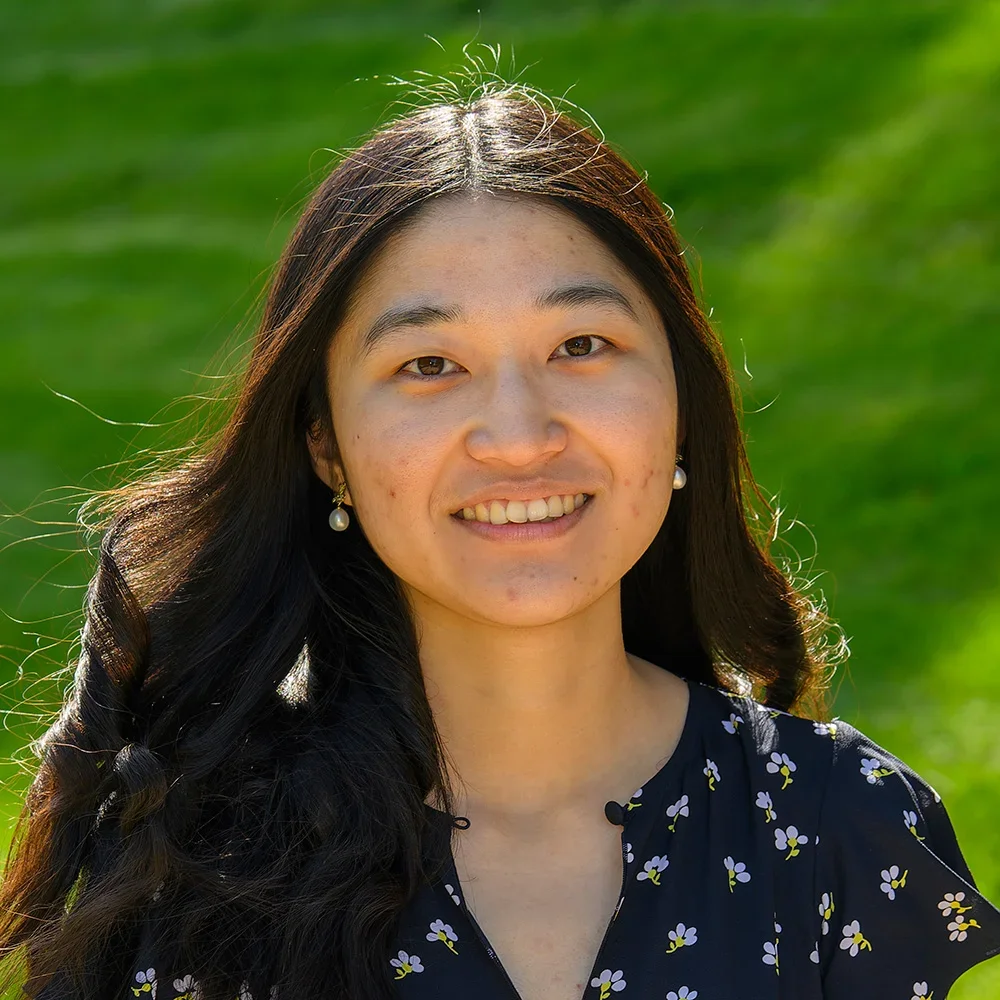
Jingyu Wu
“Choosing the Systems Medicine program at Georgetown University is the best decision I have made in my life. The program has not only introduced us the cutting-edge biomedical research, but also is an amazing opportunity to learn and connect with some of the most prominent scientists and physicians. As someone who had always wondered how bench research would practically apply to and benefit clinical settings, I found Systems Medicine is the program where the two are connected perfectly.
This one-year master’s program provides student the perfect amount of time to learn and obtain important knowledges and hands-on skills in fields such as bioinformatics, cancer genomics, and biostatistics, which are all incredibly useful and valuable in the burgeoning field of biochemistry and informatics. Moreover, the unique program curriculum including panel discussion and personalized capstone internship has not only challenged me to grow into an inquisitive scientist, but also has inspired me to critically think in a whole new dimension. The program has shaped my aspirations to do research, as well as helped me determine the specific research field I want to pursue in the future.
Our program director, Dr. Sona Vasudevan, and all the other faculty members are fully invested in each one of us and work tirelessly to help us reach our goals. Their dedication, love, compassion, and great examples have truly made the program one of its own kind on this entire planet, and the immense love and support coming from the Systems Medicine family are the reasons I excel with confidence no matter where I go or what I choose to do in life.”
Jingyu Wu (M.S. ’22)

Shanta Murthy
“I have had a wonderful time being a part of the Systems Medicine program over this past year. I am so grateful for all the guidance I have received from all of our professors. As students, we owe all of our success to our program director, Dr. Vasudevan, who has provided individualized attention to every student, is always available for her students, and strives to help make each student’s aspirations into reality.
Throughout this program, I have learned that systems medicine is a field that integrates multiple levels of information to develop a more comprehensive understanding of a disease and what may be the most suitable, personalized approach for caring for an individual patient. I have learned how systems medicine can be applied through studying gene mutations relevant to cancer or another disease, as well as integrating various analyses describing effects on the DNA, RNA, metabolome, microbiome, epigenetic factors, and structure. We have also had the opportunity to speak with researchers and medical professionals applying systems medicine to their work, including how pharmacogenomics can play a role in identifying effective therapies for patients. I have realized how the combination of these data-oriented approaches can make medical care more targeted and thus more beneficial for patients. This innovative approach to science and medicine was supplemented with thought-provoking discussions in nearly every class lecture as well as outside the classroom among peers and lecturers.
The internship was also pivotal for applying all the training we have received from all of the classes, including conducting biostatistics analysis using R, querying databases for relevant biological information, and critically reading and discussing scientific literature. In my particular project, I was able to develop and enhance my wet lab and computational skills in a project studying African
American men with advanced prostate cancer. I truly enjoyed the opportunity to engage in this field of cancer research. The diversity of internship projects students worked on is an indication of the broad application of the skills we have developed over this program.
Joining this program was the best decision I have made to date, and I am excited to apply all that I have learned in my research endeavors in the future!”
Shanta Murthy (M.S. ’22)

Alison Amar
“I am beyond grateful that I decided to join Georgetown’s Systems Medicine program. As someone who wanted to learn about medicine and biology but had no idea where I wanted to take my career, I can honestly say that the program opens your eyes to an entirely new side of medicine. The program is interdisciplinary and teaches us how to combine big data science with biology in order to use computational tools to achieve personalized medicine and healthcare. We learned about all of the levels of biology including genomics, proteomics, metabolomics, the microbiota, public policy, and more in a systems approach to medicine and healthcare.
The Systems Medicine faculty are truly the driving force behind the program. Each student gets a personalized experience and a very hands-on connection with the encouraging staff members. They gave consistently enriching lectures and were eager to provide us with additional resources or opportunities. We truly felt like a systems medicine family.
During my time in the program, I was mentored by a faculty member in the Department of Medicine where I learned how to use R programming to statistically analyze differences between disease groups and find driving variables between those differences. I am now working as a bioinformatics consultant where I will be using my analytical skills to help improve strategic innovations in the health sector of the federal government.”
Alison Amar (M.S. ’21)

Collin Campbell
“Enrolling in the Systems Medicine program was the best decision I’ve ever made. The program has opened my eyes to a new side of medicine, and it has shaped my passion and understanding of a systems approach to health. If there is anything that we can learn from the COVID-19 pandemic, it is that medicine is not a one-size-fits-all approach. Diseases manifest differently based on a variety of environmental and genetic factors, and this program helps you gain an understanding of this phenomenon.
In addition to the interdisciplinary curriculum, the faculty are invested in your success not only as a student, but also as a researcher, individual, and leader in the Georgetown community. It is important to know that you are joining a family. The faculty is committed to the long-term success of their students, and they will personalize your experience and go out of their way to help you reach your academic and professional goals.
The knowledge and skill sets that I developed throughout my time in the program have been invaluable so far in my professional career. During my capstone internship, I was mentored by the chief medical information officer at MedStar Health. I learned about pharmacogenomics and its utilization in clinical care, and my project findings provided statistical, real-world evidence for the potential need to implement genotype-guided therapy in a specific patient population. I was able to work alongside physicians and pharmacists to use my Systems Medicine mindset to craft, carry out, and present research that utilized clinical data to improve patient health outcomes.
The Systems Medicine program has provided me with amazing opportunities and an ability to contribute to solving 21st-century medical challenges. I am now working at the FDA as a bioinformatics data analyst, where I am using the skills that I gained from this program to advance precision medicine. I am forever thankful for the faculty and my Systems Medicine family. This program was truly one of the most rewarding experiences of my life.”
Collin Campbell (M.S. ’21)

Chaitan Mishra
“When covid took over our last months of college, I was filled with sentiments of worry and fear. I sent in my Systems Medicine application, not knowing what my future was holding, not knowing if my friends and family would be safe, and especially not knowing what systems medicine was. Little did I know that this program would not only change the way I view medicine but change my perspective towards life in general. My time in the program was highlighted by outstanding professors, advisors, and mentors whose unwavering dedication to our success lit a flame of inspiration within each of us students. The continued investment by the faculty made the Systems Medicine program not only an educational experience but an environment that fostered growth, development, and bonding. Instead of students, we became a family growing together.
The interdisciplinary teachings of Systems Medicine exposed us to novel practices that have revolutionized personalized disease risk and management. Through analyzing the proteomic, metabolomic, and transcriptomic levels and their complexities within disease pathology, I was shown the differences in treatment of an individual rely on a patient’s uniqueness. Taking these disciplines into account has tremendously helped my current research at the National Institutes of Health (NIH), where I now work. The skills and understanding of in-depth systems biology have allowed me to draw many inferences that have benefited my time at the NIH.”
Chaitan Mishra (M.S. ’21)

Rhea Bhatt
“The Systems Medicine program is a truly unique program that offers students exposure to study and learn at the intersection of clinical care, research, and data. It offers a personalized experience within the larger Georgetown University Medical Center ecosystem for students to explore their interests and find a niche at the frontier of healthcare.
The Systems Medicine program enabled me to develop a new skill set that is incredibly relevant for the future of patient-centered care. While acknowledging the importance of clinical and genomic data integration, the Systems Medicine program helped me to establish a foundation of a preventative, predictive, personalized approach to healthcare. I was able to work within a team of radiation oncologists at Medstar Georgetown University Hospital to explore sociodemographic factors that impact Stage IV breast cancer presentation in the United States. From this experience, I came away with a new skill set and familiarity with clinical informatics. Simultaneously, I was exposed to complexities of data sharing, access to care, and differences in outcomes.
Despite the disruption to a virtual learning environment as a result of the COVID-19 pandemic, our professors maintained the rigor of the curriculum and commitment to supporting us in our next steps. Classes were transitioned online seamlessly to ensure continuity of instruction and learning.”
Rhea Bhatt (M.S. ’20)

Sushma Maddipatla
“For someone like me who has always been fascinated by science, the Systems Medicine program was a precious gift for advancing my career. Georgetown University’s “cura personalis” approach is the essence of this program. It is recognized in medicine that the “one-size-fits-all” approach can be improved upon, but it is easier said than done. Who would have thought this point will come out so forcefully in the search for competing medications, and their varied effects on patients, to stop the spread of COVID-19? One of the hallmarks of this program is its strong emphasis on the cura personalis approach to thinking about medicine and the courses are aligned with this idea. Course work covers -omics and its interaction with external factors such as microbiota, environment, and diet in different disease studies, and analyzing BIG Data using informatics concepts and machine learning with tools such as R using publically available databases. Critical reading of research articles and biomolecular structural studies is emphasized. Lectures by several eminent scientists gave me a view of what is happening at the frontiers. Our Director and my mentor, Dr. Vasudevan, taught me invaluable skills that allowed me to be employed as an informatics analyst at the prestigious Emory University’s Pediatric Department and work for a renowned scientist and physician. Without the Systems Medicine program, this would not have been possible for me.”
Sushma C. Maddipatla (M.S. ’19)
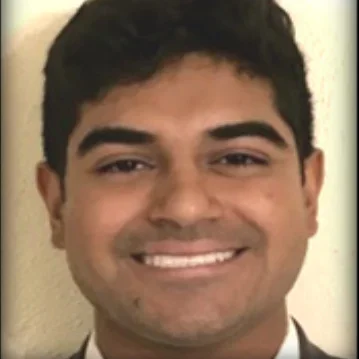
Haris Pepermintwala
“The Systems Medicine program at Georgetown was an amazing experience and taught me so much about aspects of precision medicine that I had never even heard of before. Dr. Vasudevan is the best advisor I have ever had, and she makes the program what it is. I always get questions about the Systems Medicine program during my interviews and I know that doing this program has helped my career.”
Haris Pepermintwala (M.S. ’19)

Brandon Buonaiuto
“Studying Systems Medicine was one of their best decisions I have made for my medical career. The Georgetown Community and resources made available are a true privilege and second to none. The faculty of this program is extremely considerate and invested in not only student success during the program but also the long-term success and fulfillment of student goals. As a current medical student Systems Medicine has advanced the way that I am able to consider and understand the material I learn. Thinking about medicine in the context of big data, and regarding the social and ethical issues that face the field with an understanding of a systems perspective allows me to have a unique point of view.
This program has majorly shaped my aspirations in practicing medicine and has opened up doors to amazing opportunities, networks of people, and lasting relationships with mentors and classmates. During medical school interviews, my studies were a major topic of interest and discussion because this program made me stand out as a candidate, by offering me a perspective that is unique to Systems medicine students. As technology and the data that follows rapidly advances and accumulates systems medicine is more and more so necessary for health professionals to serve efficiently and optimally. Bridging the gaps between disciplines, operating platforms, and issues is the power that comes with systems medicine. Understanding patients thoroughly on a scientific basis through the “omics” such as genomics, metabolomics allows us to advance our ability to truly deliver precision medicine. I am forever thankful and connected to my Systems Medicine family!”
Brandon Buonaiuto (M.S. ’19)
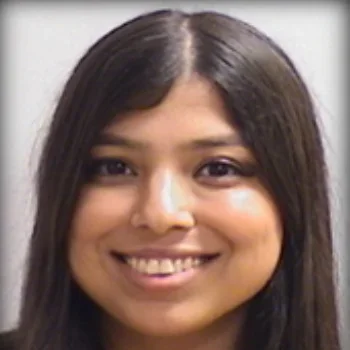
Arezo Aziz
“Healthcare providers possess incredible skills to prevent, heal, and manage diseases, and this is something that I have always dreamed of doing. However, when I found that there is still much we do not fully understand in the clinical realm despite past scientific successes and rapidly growing technologies, I realized that we have a long way to go before we can truly provide precise and effective care to all. My degree in Systems Medicine has armed me with the necessary tools and knowledge that I need to face uncertainties head-on and provide meaningful, inclusive care to patients as a future nurse practitioner.”
Arezo Aziz (M.S. ’19)
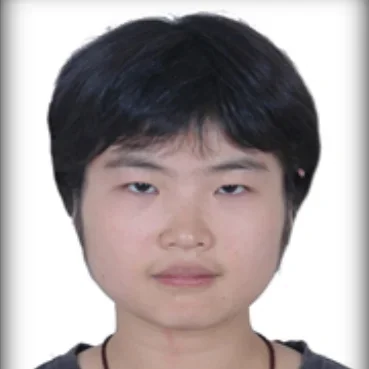
Xu Huang
“The Systems Medicine Program at Georgetown University provides courses covering almost every aspect we need to fill the gap between bench work and clinical practice. We have Introduction to Genomic Medicine to learn about how genetics interferes with medical decisions such as prescription selection, screening tests for different people, prediction model guided treatments; Biomedical Informatics to learn about different information resources used by the healthcare providers, how different systems are intergraded to clinics and how we can improve them; we have Structural Biology, Biochemistry to understand principle of biomedicine; Personalized Medicine to learn and practice Omics techniques; different omics application classes (Clinical Metabolomics, Clinical Applications of the Microbiota), informatics classes(Cancer Bioinformatics, Translational Bioinformatics, Clinical Bioinformatics) as well as computational and statistical analysis classes (Machine Learning for Biomedical Data, Application of Biostatistics to “BIG DATA”) to prepare students become omics experts to help to advance medicine. Students graduated from the program can have multiple career choices in the biomedical field. They can go to medical school and become a physician with system thinking, they can become bioinformatician and biostatistician help analyzing biomedical data and translate the biomedical findings, they can become research associates performing the omics-technologies, etc.
I became a medical informatics analyst in a regional health care system after graduation. What I benefit the most from the program is the Biomedical Informatics class I took during the first semester when I joined the program. Thanks to the class, I was exposed to the all the knowledge I would need for my job and cannot learn elsewhere (Electronic Health Record (EHR) systems, RedCap, the infostructure of the healthcare system, the privacy, confidentiality and security, mobile health implementation, interoperability, and standards), I became a RedCap Administrator starting to answer phone calls to physicians, pulling data from the EHR for analysis, designing databases for data collection the second day I joined MedStar. People were surprised how I picked up things that quickly, I would say it’s because the Systems Medicine Program had prepared me well to fill this gap between biomedical research and medical practice with system thinking.”
Xu Huang (M.S. ’19)

Anas Belouali
“My time at the Systems Medicine Master’s program was a great learning opportunity to grow and develop my career. It was a well-rounded and interdisciplinary program that harness the power of different fields to teach students how to draw complex conclusions in the medical field.”
Anas Belouali (M.S. ’18)

Khuyen Mai
“I was trying to figure out a way to stay engaged with current topics in the biomedical and healthcare fields, and Systems Medicine helped me achieve just that! I am deeply grateful to Dr. Sona Vasudevan for the extraordinary learning opportunity. Under her leadership, the program had enabled me to gain a better understanding of how clinical data is managed and understood to analyze the health of the individual patient, a leap in providing personalized care to our society.”
Khuyen Mai (M.S. ’18), currently at Georgetown University

Henry Walch
“The Systems Medicine program taught me the value of big data and showed me how it can be applied to questions in medicine and translational research. Systems Medicine cemented my interest in pursuing a career in medicine. The program shows students how various -omic fields can be applied in a clinical environment. The Systems Medicine program offered me a variety of opportunities to learn how genomics research is impacting patient care. I was taught skills that were incredibly useful for my career after I graduated.”
Henry Walch (M.S. ’18)

Vaishnavi Narayan
“For someone who is new to the American academic system, Systems medicine and Georgetown gave me all the confidence to pursue higher goals in Healthcare. The program has shaped my aspirations to do research and pursue a medical career.”
Vaishnavi Narayan (M.S. ’18)

Archana Hari
“For a student looking towards a career in Medical research, the prime question is what program to get a Master’s in. And at such a point in life, the best program would be one that provides an overview of every field in Medicine that requires researchers. The Master’s in Systems Medicine did exactly that. The program perfectly integrates every “Omics” data out there and helps understand every aspect of health care from the molecular level to the Policy level. I was given every opportunity to go out of my way and know more about what is being taught and to perform the best. This program helps transition into any Medical Science and helps us think in multiple dimensions, which is essential for research. One of the biggest exposures that SYSM gave me was the experience of interning under a physician. I worked with Dr. Baranuik at the Central Research Unit, where we interacted with patients and was given real patient data for my project. Connecting with the patients made me realize the power and importance of research. SYSM was my stepping stone to a PhD. If you are driven towards saving lives and making an impact on society, you know this is the right program for you.”
Archana Hari (M.S. ’17)
M.D./M.S. Alumni

Mario Giovacchini
“I was extremely pleased to be accepted into the Systems Medicine program during my first year of medical school at GUSOM. The courses included everything from Epidemiology to Applied Biostatistics in R to learning how to write a good IRB proposal. It was everything I needed to feel confident that I could meaningfully contribute as a member of a clinical research team, and I have already used many of the skills I learned from this program in real-life research. I remember the first time a PI asked me if I knew how to do a particular kind of data analysis and I could answer, “Yes! They taught me how to do this exact thing in class!” I continue to build on the foundational concepts I learned in this program and still refer back to my notes, presentations, and textbooks today. Doing research is such an important part of building a good CV for residency applications and beyond, and more importantly, I now have the skills I need to be able to formulate my own research questions and to begin finding out the answers.”
Mario Giovianni (M.D./M.S. ’17)
“In the traditional curriculum, medical students are not being trained to meaningfully interpret the ‘big data’ that is generated from advanced clinical informatics and ‘-omics’ technologies. I decided to study Systems Medicine in order to be prepared to serve my patients in this data-rich biomedical and clinical environment. Every oncologist and pathologist, and many other types of physician-scientists, will need this training in the near future. For the good of our patients, physicians like me will need to make sense of this data when it crosses our desks…”
Sister Grace Miriam Usala (M.D./M.S. ’16)
“I believe the masters in systems medicine was the impetus for much of my research interest and activities thereafter. It provided a broad education in the ways that so many factors influence health beyond what is currently employed as diagnostics tests in medicine. In the years since completing my masters’ degrees, I have employed much of the knowledge gained in “omics”, statistics, and bioinformatics to both augment my own research and understand the literature in oncology. I am grateful for the chance to have studied these topics in medical school and have since returned to teach in the program as well.”
Nima Aghdam (M.D./M.S. ’16)